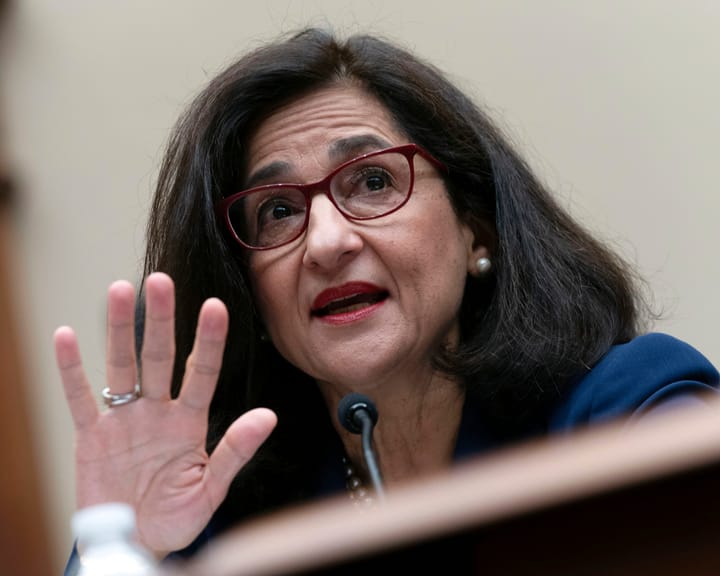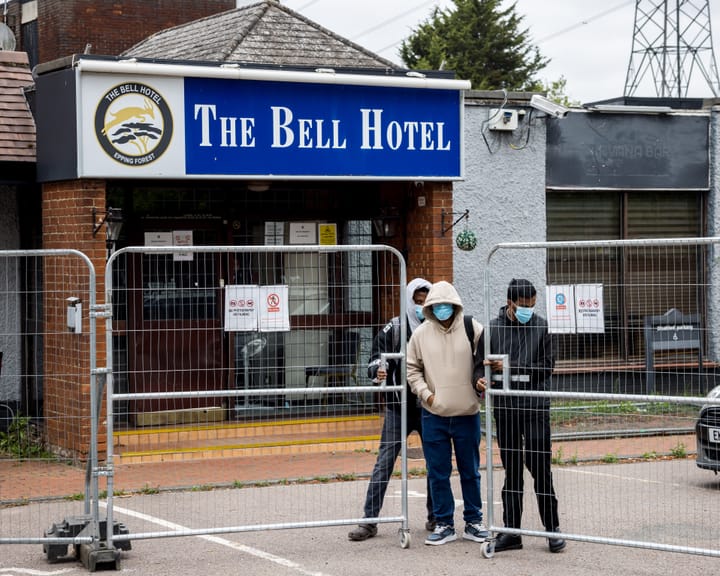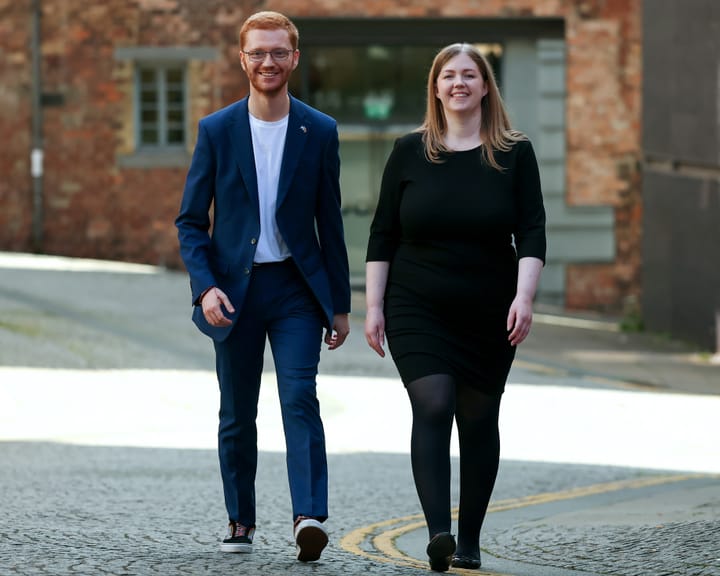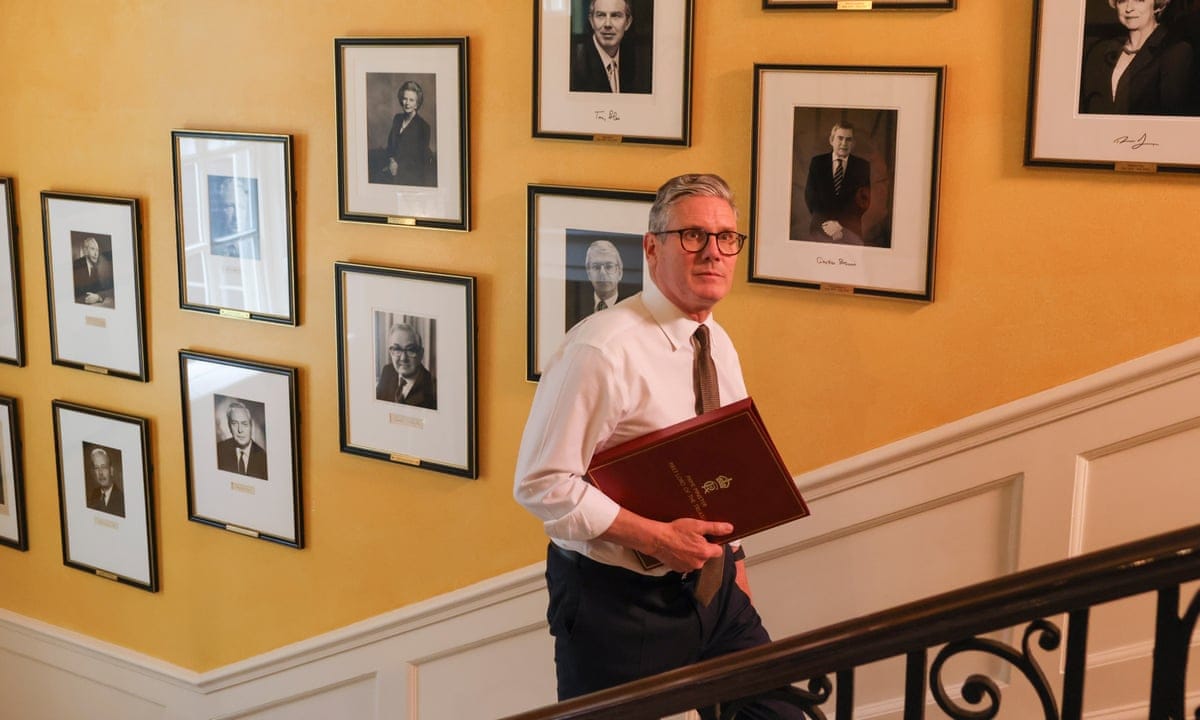On Saturday morning, just over 24 hours after his initial congratulations from King Charles for winning the general election and becoming prime minister, Keir Starmer walked into Downing Street's state dining room at precisely 1pm. This event marked an unusual occurrence in Britain where power transfer typically happens swiftly within a day of a general election, often leaving those involved struggling to adapt amidst constant personnel changes from one government role to the next.
Labour leader Starmer had been actively preparing for this moment even before the official announcement of his victory at Buckingham Palace. He took part in numerous meetings with international leaders like Joe Biden and met with key members of his new cabinet, including Bridget Phillipson, who would become the first female Secretary of State for Business, Energy and Industrial Strategy under Starmer's administration.
Acknowledging that he may not have had ample time to fully acclimate himself, Starmer embarked on a full-day agenda with no room for delay or rest. The day began with an appearance at the state dining room where, dressed in a sharp grey suit complementing his mildly fatigued eyes, he appeared ready and resolute.
Following his visit to Downing Street, Starmer attended two separate meetings held by the House of Commons Business, Energy and Industrial Strategy Committee - one with senior members from across all political parties in Parliament, led by its chairman Bernard Jenkin MP, a Conservative; and another with Labour's shadow cabinet.
Despite his lack of familiarity with many faces present due to the limited time for adjustment post-election victory, Starmer handled both sessions without hesitation or visible discomfort. He demonstrated an unwavering commitment to ensuring that government business continued smoothly despite the unexpected turnover of roles resulting from the election.
His dedication extended beyond parliamentary proceedings as he planned a tour across Scotland, Northern Ireland and Wales on Sunday to meet first ministers and metro mayors throughout the country. Additionally, Labour's foreign secretary David Lammy commenced his first overseas trip prioritizing engagements in Germany, Poland and Sweden, signifying the new administration's intentions for strengthening international relationships.
Throughout this whirlwind of activities, Starmer maintained a stance marked by forthrightness and determination to implement changes promptly, emphasizing his belief that politics should operate differently under his leadership. The Labour government was anticipated to announce various initiatives shortly in alignment with the Prime Minister's mission for governance.
In summary, Keir Starmer demonstrated an impressive level of composure and dedication during his first day as prime minister, despite the challenges presented by a swift power transition following the general election. His commitment to continuing business operations within Parliament while simultaneously planning future activities across the UK and abroad highlighted his intent to bring about transformative change in British politics.
Read next

"Starmer appoints ex-Bank deputy governor as top economic advisor"
Minouche Shafik to Become Keir Starmer’s Chief Economic Adviser
Former Bank of England deputy governor Minouche Shafik is expected to join Keir Starmer’s team as his chief economic adviser.
Her appointment comes as the prime minister’s office prepares for the autumn budget, following Shafik’s recent leadership

"Home Office wins appeal allowing asylum seekers to stay at Epping hotel"
The appeals court has determined that the injunction issued by the high court should not have been approved.
Those involved acknowledge they have become part of a broader discussion about how asylum seekers are managed and urge the public to recognize that the Bell hotel was only fulfilling a government-mandated

"Scottish Greens' new leaders push for universal income and free bus fares"
Scottish Greens' new leaders, Ross Greer and Gillian Mackay, have pledged to advocate for a universal income, free bus travel, and increased taxes on high earners following a subdued leadership race.
Greer and Mackay, previously backbench MSPs at Holyrood, were elected co-conveners of the Scottish Greens with a notably

